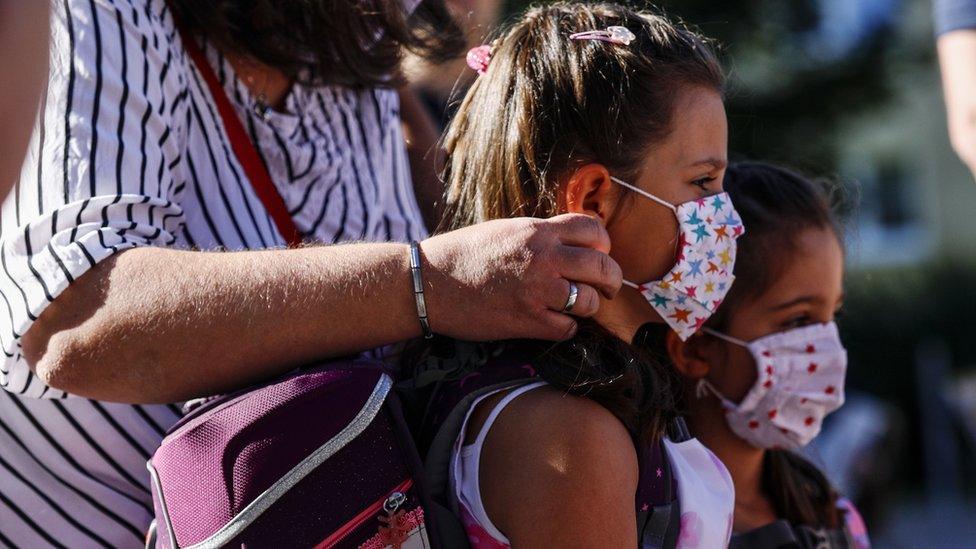Coronavirus: European countries taking action after cases rise
- Published

These girls in Germany wore masks for their first day back at school on 1 August
Countries across Europe are bringing in measures to help reduce the spread of coronavirus after a rise in cases following the lifting of lockdown restrictions.
The UK had 1,522 coronavirus cases on Thursday, which is the most cases since mid-June.
But the government says despite this it is safe for schools to reopen and a UK study published on Friday found that the Covid-19 risk to children is "tiny" compared to adults.
Countries are putting stricter rules in place to limit the spread of the virus, including the greater use of face masks or coverings, and local lockdowns in areas with a spike in the number of people with the disease.
France has recorded its second-highest number of daily coronavirus cases since the beginning of the pandemic. There are new rules in Paris requiring people to wear face masks as a result.
Infections started increasing in Spain in July. In August, numbers were higher there than during the peak of pandemic, although some officials say this is due to increased testing.
Children as young as six-years-old will have to wear face masks in Spanish schools. In the Canary Islands, wearing masks is now compulsory in workplaces.
Ukraine closed its borders on Thursday, after a record 2,438 cases were reported there in 24 hours.
In Germany, the government has said coronavirus is "fully back" and is advising people not to travel to high-risk countries or regions.
Switzerland and the Czech Republic have both been added to the UK's quarantine list. That means anyone arriving from those countries from Saturday will have to self-isolate for 14 days.
- Published27 August 2020
- Published19 May 2020
- Published29 August 2022
